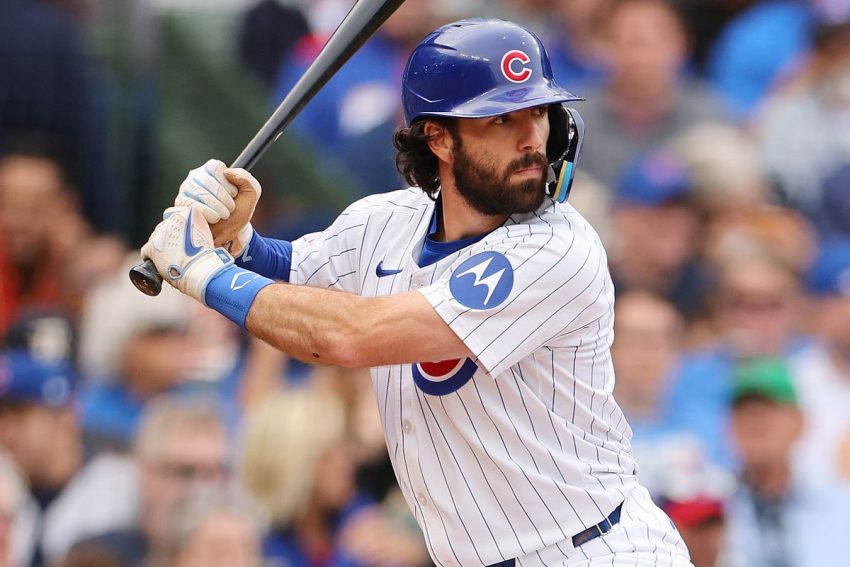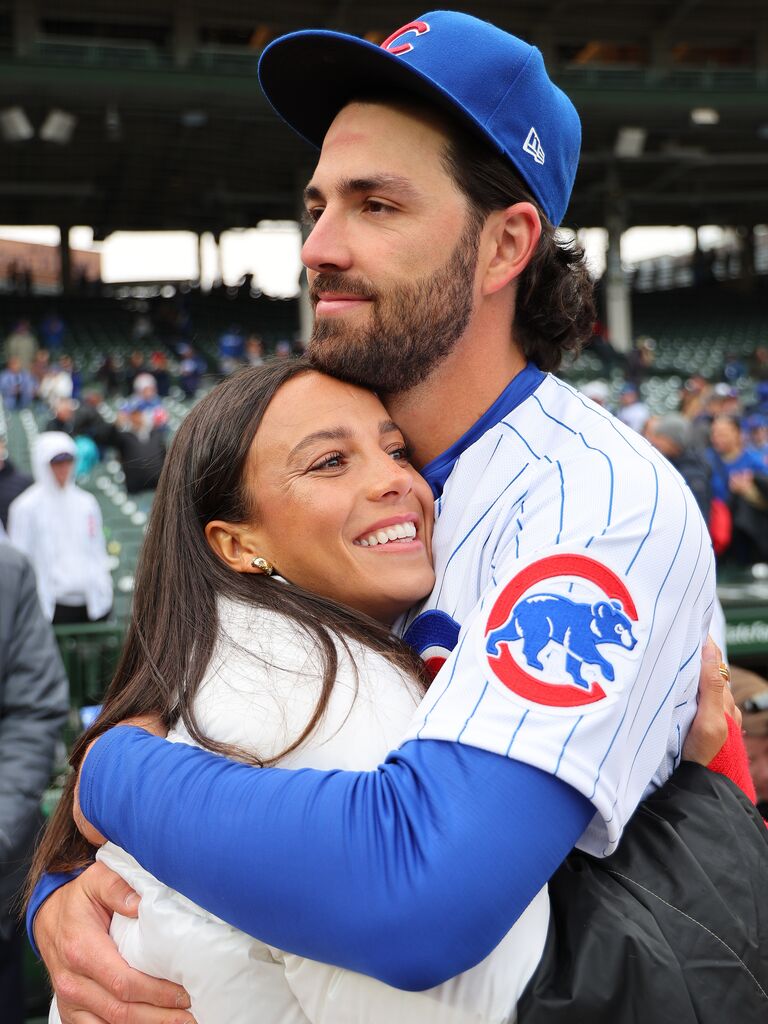In a move that has stunned both fans and media alike, Chicago Cubs shortstop Dansby Swanson has made a bold and controversial statement regarding Major League Baseball’s annual Pride Night. Swanson, known not only for his leadership on the field but also for his outspoken views on various social issues, has announced that he will be boycotting the league’s Pride Night celebration, stating that the focus on the field should solely be on baseball, not on social movements.

Swanson’s Bold Stand
Dansby Swanson has become an increasingly influential figure in the MLB, not just for his performance but for his ability to lead his team both on and off the field. His announcement regarding Pride Night comes at a time when sports leagues across the country are facing increased pressure to engage in social justice causes. However, Swanson has made it clear that he believes sports should remain apolitical.
In an exclusive interview, Swanson elaborated on his decision, saying, “The field is where we should be focusing. It’s about baseball. The politics, the movements, they don’t belong here. I understand people have their causes, and I respect them, but we need to keep sports about the game. The fans come to watch baseball, not to get political.”
Reaction From the Baseball Community
Swanson’s comments have sparked a wide range of reactions across the baseball community. Some fans have supported his decision, agreeing that sports should remain a neutral ground, free from external political pressure. Others have condemned his stance, citing the importance of inclusivity and support for the LGBTQ+ community, particularly during Pride Month.
Major League Baseball has long championed Pride Night as part of its effort to promote diversity and inclusivity within the sport. The league has faced mounting calls for greater representation and support for marginalized communities, especially in the wake of social justice movements in recent years.
Swanson’s decision, however, has reignited the debate about the intersection of sports and activism. Critics argue that Pride Night is not a political statement, but rather an opportunity for MLB to stand in solidarity with the LGBTQ+ community, showing that baseball is a welcoming space for everyone. These critics suggest that Swanson’s comments could alienate fans who view such events as crucial to fostering a sense of inclusivity and unity within the sport.
/cdn.vox-cdn.com/uploads/chorus_image/image/73911077/2176238629.0.jpg)
Cubs’ Fans Divided
Fans of the Chicago Cubs are equally divided over Swanson’s comments. While some admire his commitment to keeping the game pure and focused on athletics, others feel that his stance undermines the efforts of MLB and its teams to create a more inclusive environment for all players and fans. The Cubs organization itself has yet to officially comment on Swanson’s remarks, but it is clear that his decision has opened up a larger conversation about the role of athletes in social causes.
“I think sports figures have a responsibility to be role models, not just for their athleticism but for their character,” said one Cubs fan. “But I also believe they have a duty to support and stand with marginalized groups. Pride Night is important for so many people, and for Dansby to say what he did, it feels like a step back.”
The Role of Athletes in Social Movements
Swanson’s comments tap into the ongoing debate about the role of athletes in social movements. While some believe that athletes should use their platform to speak out on important issues, others contend that sports should remain a place where fans can escape from the divisiveness of politics. Swanson’s comments seem to suggest that he falls into the latter camp, advocating for a more traditional view of sports where the focus remains on competition and teamwork rather than societal issues.
This debate is not unique to MLB. Other professional sports leagues, including the NBA and NFL, have faced similar discussions about whether players should be encouraged to take a stand on political and social issues. Swanson’s position, however, raises the stakes in a league that has been slow to embrace social justice initiatives compared to other major American sports leagues.
/cdn.vox-cdn.com/uploads/chorus_asset/file/25722465/2175370547.jpg)
What’s Next for MLB’s Pride Night?
As Swanson’s stance gains traction in the media, it remains to be seen how MLB will respond. The league has made it clear that it supports Pride Night, but with Swanson’s boycott, the event could face significant scrutiny. MLB may have to find a way to balance the interests of players like Swanson with the desires of its fanbase, many of whom feel that inclusivity should be an essential aspect of the sport’s culture.
Moreover, Swanson’s decision could have wider implications for future Pride Nights in the MLB and other sports leagues. While some view his actions as a brave stand against the politicization of sports, others fear that it may embolden players in other leagues to follow suit, thus challenging the growth of inclusivity within professional sports.
Conclusion: The Future of Sports and Activism
Dansby Swanson’s decision to boycott MLB’s Pride Night represents a pivotal moment in the intersection of sports and activism. While his comments have stirred controversy, they also underscore the broader tensions in professional sports about the role athletes should play in social movements. As the debate continues, one thing is clear: the future of sports and activism remains as divided as ever. Whether or not Swanson’s decision will have a lasting impact on the landscape of MLB, and sports as a whole, remains to be seen.
For now, fans and players alike must grapple with the balance between maintaining the purity of the game and supporting the causes they believe in. Only time will tell if the tensions sparked by Swanson’s boycott will reshape the future of Pride Night in Major League Baseball.

